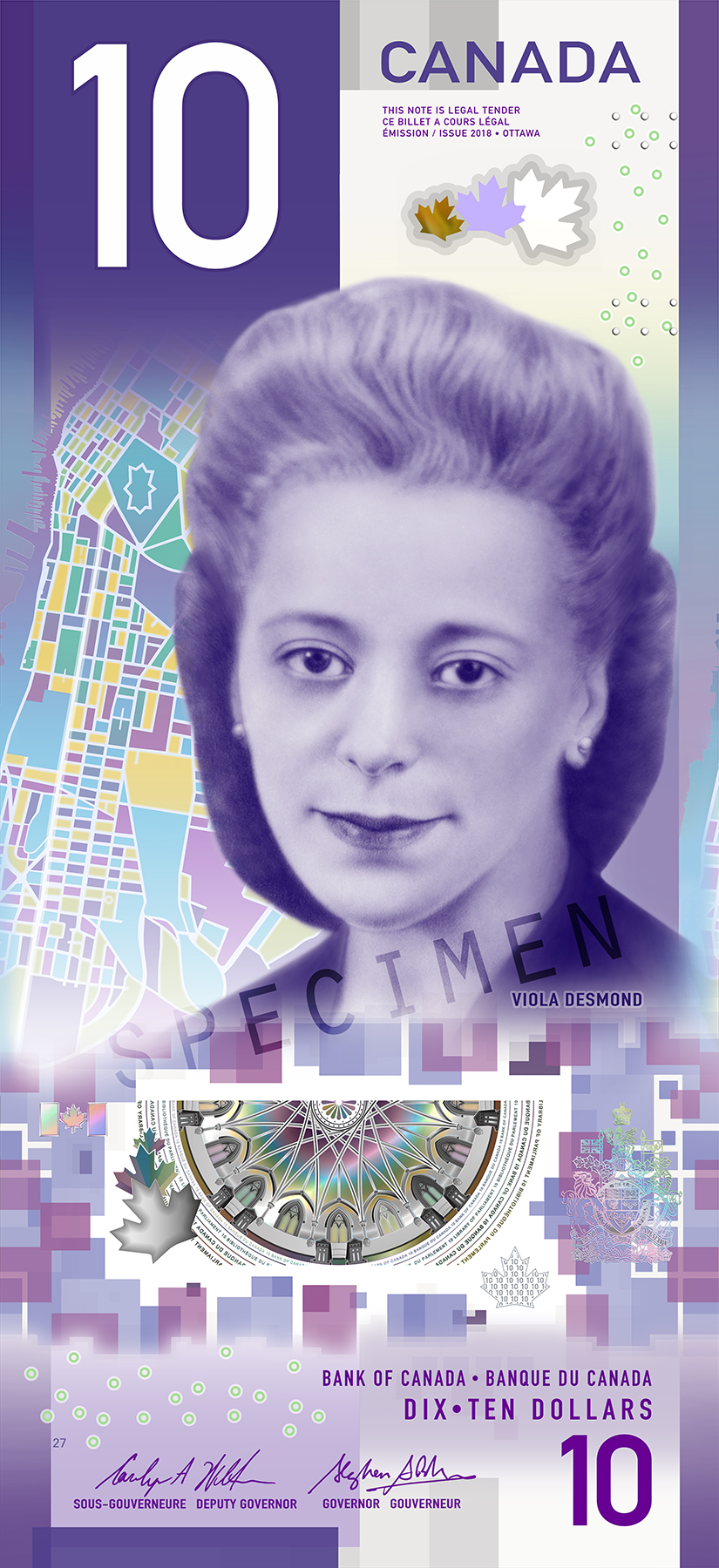Desmond, Viola (1914-1965), was a Black Canadian who brought attention to the problem of racial discrimination in Canada. Racial discrimination is the unequal treatment of people based on race. In 1946, Desmond was arrested for refusing to move to a section reserved for Black people in a theater in New Glasgow, Nova Scotia. She has been called “the Rosa Parks of Canada.” Parks was an African American who was arrested in 1955 when she refused to give up her seat on a bus in Montgomery, Alabama, to a white passenger. Parks’s action helped bring about the civil rights movement in the United States.

Viola Irene Davis was born on July 6, 1914, in Halifax, Nova Scotia. In 1936, she married John Gordon (Jack) Desmond. She became a hairdresser and a beauty college administrator, and opened a beauty shop in Halifax.
On Nov. 8, 1946, Desmond was driving through New Glasgow when her car broke down. She decided to see a movie at the city’s Roseland Theater while she waited for her car to be repaired. Desmond bought a ticket and sat in a seat on the main floor of the theater. She was unaware of the theater’s policy of allowing Black people to sit only in the balcony. The theater manager asked her to move to the balcony. When Desmond refused, the manager called the police, who arrested her. She was dragged from the theater and held in jail overnight.
The next morning, Desmond was found guilty of not paying a 1-cent difference in tax between the main-floor and balcony theater tickets. Though Desmond offered to pay the difference, she was fined $20, plus $6 in court costs. She was also sentenced to 30 days in jail. She fought the case with the help of the Nova Scotia Association for the Advancement of Coloured People, a civil rights organization. The case went to the Nova Scotia Supreme Court, but the court upheld the earlier verdict. However, the previous court decisions were overturned on a second appeal. In 1954, the Nova Scotia government struck down segregation—the separation of groups of people by law—in the province.
Desmond died in New York City on Feb. 7, 1965. In 2010, the government of Nova Scotia apologized and granted a free pardon to Desmond. A free pardon admits a conviction was in error. It was the first time such a pardon was granted in Canada to a person who had died. In 2018, Canadian officials unveiled a new $10 bill featuring Desmond. She was the first Canadian woman featured on a bill designed for regular circulation.
